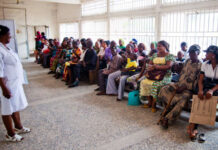Revitalising Education in Arewa: A call to action, by Dr. Tukur Madu Yemi
“In Nigeria today, over 10 million children remain out of school, the majority of them in the North (UNICEF, 2021). For every day this crisis persists, the future of an entire generation hangs in the balance.”
Education is the cornerstone of national development, yet Northern Nigeria (Arewa) continues to lag behind in educational attainment. Stark disparities between the North and South persist, with the North recording the lowest school enrollment rates in the country (UNICEF, 2021). Systemic neglect, cultural barriers, inadequate infrastructure, and security challenges have exacerbated this crisis. If left unaddressed, the consequences will be catastrophic—deepening socio-economic stagnation, rising unemployment, and escalating insecurity. The urgency for a comprehensive, sustainable educational reform in Arewa cannot be overstated. Solutions must be multi-faceted, requiring the collaborative efforts of government, religious leaders, educators, parents, and the private sector to reimagine education and secure a better future for the region. If we fail to act now, we are sitting on a ticking time bomb—one that, if ignored, will inevitably detonate into a full-blown crisis of poverty, extremism, and social collapse.
One of the most pressing challenges is the outdated Almajiri system, which, though historically rooted in Islamic tradition, has become synonymous with child neglect. Millions of children, like Musa, a 10-year-old from Kano, are sent away in pursuit of Qur’anic education but end up begging on the streets, vulnerable to hunger, abuse, and radicalization. Reforming the Almajiri system does not mean abandoning its religious foundation; rather, it requires modernizing it by integrating subjects such as mathematics, science, and vocational training into its curriculum. Research indicates that blending religious education with formal learning enhances literacy, employability, and socio-economic mobility (Abdullahi & Haruna, 2020). Governments must work closely with Islamic scholars to formalize Almajiri schools, invest in educational infrastructure, and recruit trained teachers who can bridge the gap between tradition and modernity. Without urgent reform, the rising population of uneducated, disenfranchised youth could become a ready pool for criminal enterprises, further fueling insecurity and destabilizing the region.
Beyond the Almajiri system, the broader educational landscape in Arewa is in dire need of investment. Many schools lack basic infrastructure, leading to overcrowded classrooms, inadequate teaching materials, and substandard learning conditions (World Bank, 2022). Expanding and rehabilitating schools, recruiting and training more teachers, enforcing free and compulsory education, and implementing school feeding programs are all essential steps toward revitalizing the sector. Additionally, tackling cultural barriers to girl-child education remains a critical challenge. Over 60% of out-of-school children in Nigeria are girls, the majority of whom live in the North (UNESCO, 2022). Early marriage, financial constraints, and domestic responsibilities continue to rob young girls of educational opportunities. Without urgent intervention—through community advocacy, scholarships, the strict enforcement of child marriage laws, and female-friendly school policies—the cycle of poverty and underdevelopment in Arewa will only deepen. A society that denies its girls an education is a society that stunts its own progress.
Technology also presents a powerful tool for bridging the educational divide. E-learning platforms, digital classrooms, and affordable internet access can provide students with high-quality learning resources, even in remote areas. In Sokoto, a pilot project that provided students with preloaded tablets saw literacy rates improve by 30% within a year. Scaling such initiatives could revolutionize education in the North. However, no educational reform can succeed in an unsafe environment. The recent surge in school kidnappings has forced many parents to withdraw their children from school. Urgent security measures—such as deploying trained security personnel, strengthening community surveillance, and improving school security infrastructure—must be implemented to restore confidence in the education system. Additionally, public-private partnerships must be strengthened to support school construction, teacher training, and scholarship programs. If security concerns remain unaddressed, more schools will shut down, further widening the educational gap and leaving an entire generation unprepared for the future.
A Call to Action
Government agencies, religious leaders, educators, and private-sector stakeholders must come together to modernize the Almajiri system, increase education funding, dismantle cultural barriers to girl-child education, leverage technology for learning, enhance school security, and foster meaningful public-private partnerships. Education budgets must be increased, child protection laws—especially those concerning girls—must be strictly enforced, and innovative learning solutions must be expanded. The collective commitment of all stakeholders is essential to securing a brighter future for Arewa’s children.
The fate of Arewa’s next generation depends on the choices we make today. If we fail to act now, we are not just sitting on gunpowder—we are lighting the fuse. Ignoring this crisis will only lead to an inevitable explosion of poverty, crime, and insecurity. The time to act is now—before it’s too late.
Follow the Neptune Prime channel on WhatsApp:
Do you have breaking news, interview request, opinion, suggestion, or want your event covered? Email us at neptuneprime2233@gmail.com





